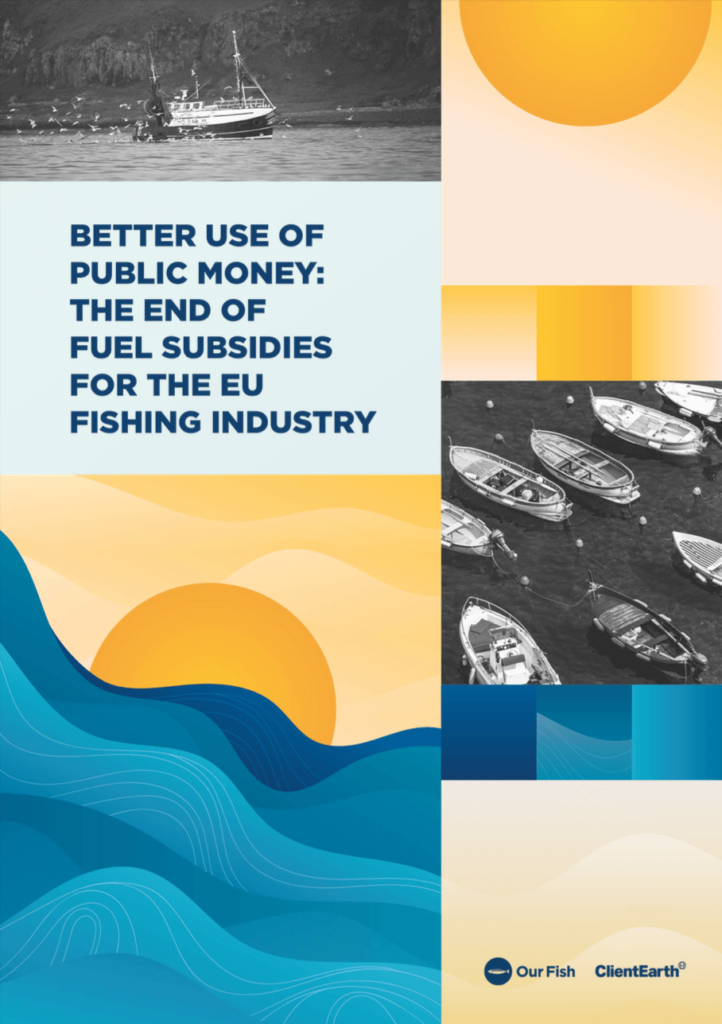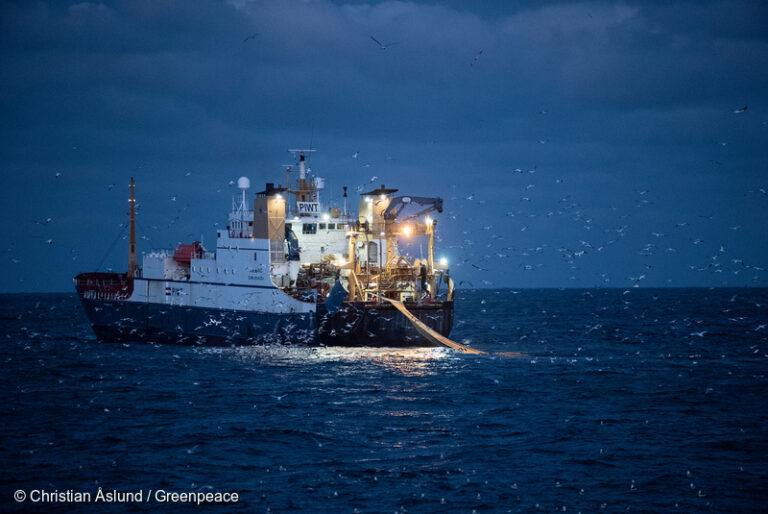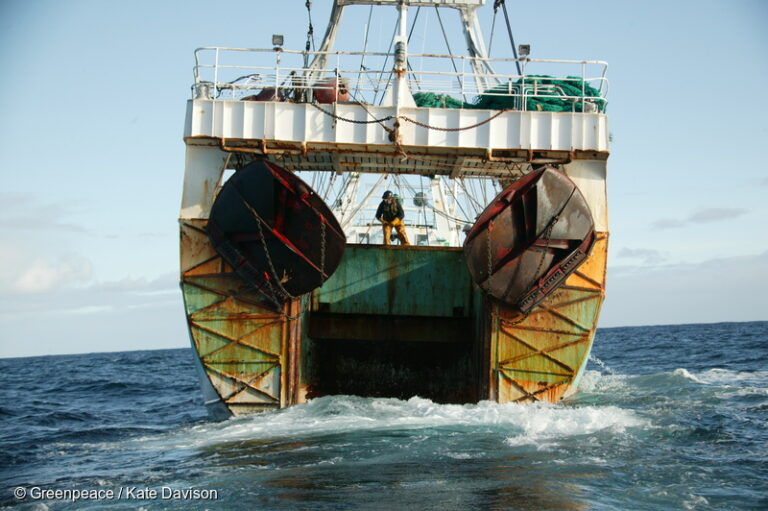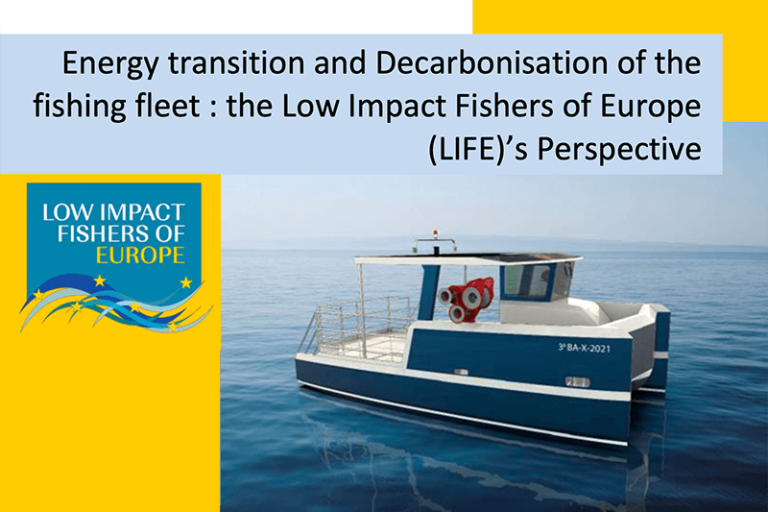A video recording of the press briefing for the launch of the report is available above.
View the speakers’ presentation here.
Brussels, 12 April 2023: – Our Fish is calling on all EU Member States, particularly those with important small-scale fishing fleets, such as Spain, France and Germany, to support the introduction of appropriate fuel tax for the fishing industry in the revision of the EU Energy Taxation Directive, as a new report shows that by cutting fuel subsidies, the EU could have instead generated between €653 million and €1.4 billion in annual revenue, and used it to pay the salaries of twenty thousand fishers or fund over six thousand energy reduction & decarbonisation projects [1].
The study, commissioned by the Our Fish campaign, and authored by independent researchers, “Better Use of Public Money: the End of Fuel Subsidies for the EU Fishing Industry”, details how EU Member States could fund a more ecologically sustainable and socially equitable and resilient fishing industry by removing fuel tax subsidies, while also delivering good economic outcomes, with an average impact score calculated by the report authors of 188% above fuel subsidies. The report includes case studies for France, Spain and Germany and demonstrates that between 2010 and 2020, the EU fishing fleet was exempted from paying up to €15.7 billion in fuel taxes.
The report states that “In the proposal for a revised Energy Taxation Directive (ETD), the proposed tax rate for fishing industry fuel is as low as 3.6 cents per litre; approximately 20 times lower than average tax rates used for road transport (67 cents per litre). However, removing fuel subsidies does not necessarily mean a reduction in overall support for the fisheries sector… With 33 cents tax per litre in 2019 (the minimum level of taxation applicable to motor fuels specified in the EU Council Regulation on the taxation of energy products), the EU could have paid the salaries of twenty thousand fishers for a year or more than six thousand energy reduction & decarbonisation projects.”
“In our report, we calculated the avoided taxes for the EU large and small-scale fleet over the period 2010-2020 for three different scenarios of taxation, and then used the results to illustrate what could be done differently and with vastly greater social benefit than fossil fuel subsidies. This means putting vast sums of money to use for good fisheries performance”, said report co-author Dr Laura Elsler, independent scientific consultant. “The data clearly shows that by supporting the biggest emitters, fuel subsidies stand in the way of a transition to low-carbon fisheries.”
“What this report shows is that the EU could provide more of the subsidies that help shift from unsustainable and unprofitable fishing to income-supporting and environmentally sound use of public money. Ramping up alternative subsidies such as fleet decarbonisation, support of fishers and other schemes can have clear benefits for humans and the environment, with an impact higher than fuel subsidies”, said report co-author Dr Maartje Oostdijk, researcher at the University of Iceland.
“The review of the Energy Taxation Directive is critical to ensuring that EU legislation is up to date and it can deliver on its commitment to current and future generations to take action to end the climate crisis”, said Rebecca Hubbard, Program Director at Our Fish.
“While a crucial element of this action means cutting emissions and ending fossil fuel subsidies, the EU has for decades supported the consumption of fossil fuels by subsidising fuel for the fishing industry. As this report shows, subsidising fossil fuel use does no favours to the fishing industry or our communities, because alternative subsidies can deliver better outcomes for fishers, the environment and the climate.”
“EU member states who have important small-scale fishing fleets such as Spain, France, and Germany, could have instead invested the revenue generated by fuel tax to pay annual salaries, train fishers professionally, support low-impact fishing projects, energy reduction and decarbonisation, regenerative practice and fisheries management initiatives, and achieved an average impact 188% higher than fuel subsidies”, added Hubbard.
“Since the EU fishing fleet is currently very profitable, and the large-scale fleet are the ones that benefit the most from fuel subsidies, Member States could better support their small-scale fisheries with alternative subsidies, delivering improved socio-economic conditions and accelerating an urgently-needed decarbonisation of the EU fishing fleet”, concluded Hubbard.
Contacts:
Dave Walsh, Our Fish [email protected], +34 691 826 764
Notes:
[1] Better Use of Public Money: the End of Fuel Subsidies for the EU Fishing Industry
Report: Better Use of Public Money: the End of Fuel Subsidies for the EU Fishing Industry
Disclaimer: The figures for the proposed tax rate by the Commission in the revised ETD are €0.0324 (not €0.036) and will be updated in the report shortly. The error came from the conversion from gigajoule to marine fuel.
About Our Fish
Our Fish is working to end overfishing and restore a healthy ocean ecosystem.
By collaborating with others, and deploying robust evidence, we are calling for an end to overfishing as a critical and significant action to address the biodiversity and climate crisis.





